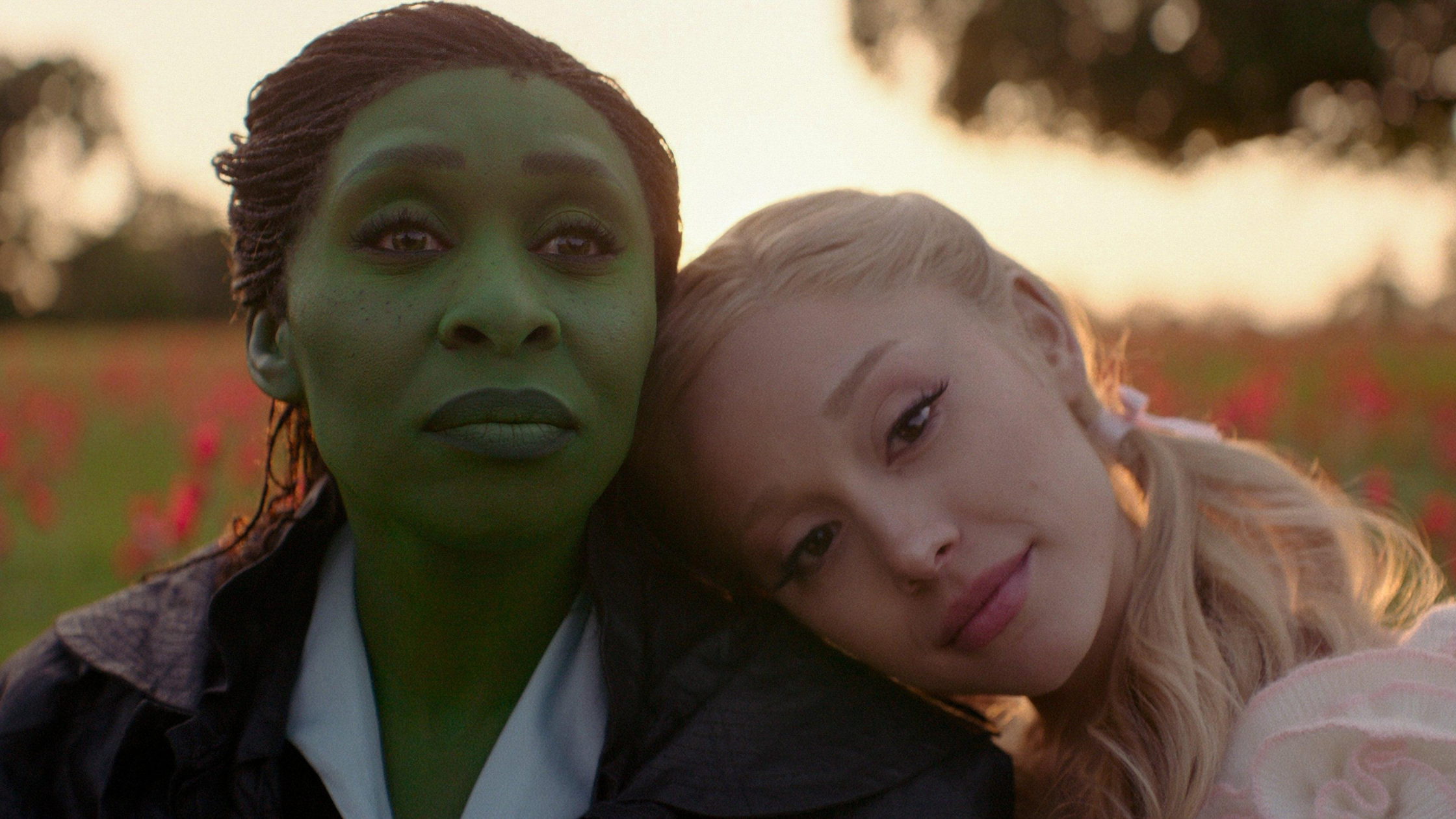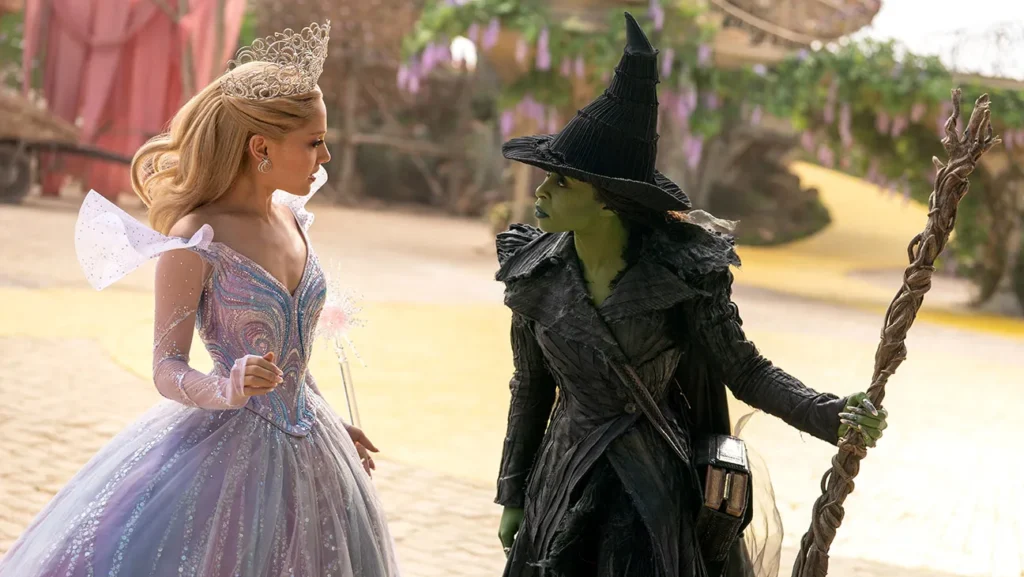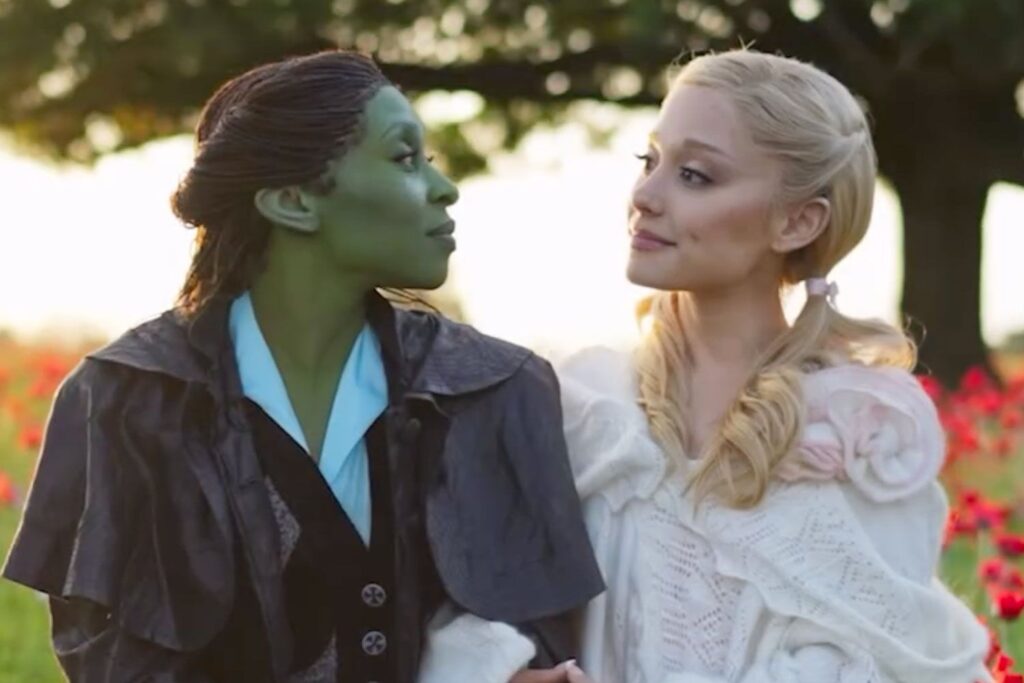Sisterhood Takes Center Stage: A Wicked for Good Review

There ain’t no rest for the wicked. And that’s especially true for the blockbuster Broadway stage-to-screen musical, Wicked. After only one year since the release of its first installment, the series delivers its highly-anticipated Part Two: Wicked for Good right in time for Thanksgiving. Ariana Grande and Cynthia Erivo reprise their roles as Glinda the Good and The Wicked Witch of the West, aka Elphaba. The dynamic duo once again take the big screen by storm with powerful vocals, inspiring character arcs, and a friendship that stands strong and true.
Read ahead for our review of the second film in this beloved story of two witches, Wicked for Good.
From Opposites to Allies
After watching Wicked: For Good, one thing is undeniable: this sequel isn’t just the continuation of a beloved story — it’s a full-throttle celebration of sisterhood. Director Jon M. Chu brings Cynthia Erivo’s Elphaba and Ariana Grande’s Glinda back to the screen with even more emotional depth, nuance, and tension. What unfolds is a portrait of two women whose relationship refuses to fit neatly into categories of “good” or “wicked,” and that’s exactly what makes it so powerful.
Seeing Elphaba in the forest — exiled, determined, and still fighting for those who can’t fight for themselves — is a stark contrast to Glinda’s polished public role in Emerald City. Their physical distance mirrors their emotional one. The cracks are starting to show and their differences in opinions and morals is seeping through to the surface. Even their attempts at reconciliation are messy, painful, and so deeply human. A timely reminder to all of us who may be dealing with messy relationships that you won’t always see eye to eye with those you care about. People change, and sometimes, it’s okay to just let that be and agree to disagree. But you can find common ground.

When the stakes rise and Oz fractures around them, we watch them move toward each other again. Not as perfect heroines, but as complicated women choosing understanding over assumption. That’s where the film hits its emotional stride: in the quiet moments when they each decide that sisterhood is worth the risk. They choose each other, despite their differences, and lean into each others’ strengths.
Rewriting the Narrative of Power
What struck me the most is how the movie refuses simple morality. No one is entirely right or entirely wrong. Instead, we watch Glinda and Elphaba try to make meaning out of betrayal, hope, grief, ambition, and loyalty — and the film gives them the space to grow without punishing them for their complexity.
As Erivo has said in interviews, “This story asks us to reconsider the labels we place on others and ourselves. … It’s about empathy and understanding.”
This is feminist storytelling at its best. It’s about women taking up space, choosing agency, and learning to define themselves outside of expectation. Their friendship becomes its own form of resistance — a reminder that listening and empathy can rewrite the story entirely.
Also read: Top 10 Female TV Characters Who Inspire and Empower
A Feminist Epic in Its Own Right
Having seen it, I can say the emotional impact is real. To sum it up in two words: heartbreakingly tender. The performances are staggering — raw, layered, beautifully vulnerable. Erivo and Grande don’t disappoint when it comes to taking on the challenging ballads. They both shine in their own light while still complementing––lifting––each others’ gifts for what may just be the best vocal chemistry in movie history.
The film balances spectacle with sincerity, and the relationship between Glinda and Elphaba is the heartbeat of it all.

By the time the story reaches its climax, the film becomes more than a fantasy musical; it becomes a reflection on what it means for women to choose each other, even when the world pushes them apart. The ending lands with the weight of friendship tested, stretched, and ultimately strengthened.
Feminism on the Yellow Brick Road
What sets Wicked: For Good apart is its honesty. It lets Glinda and Elphaba be ambitious, flawed, wounded, hopeful, and courageous — all at once. Their bond doesn’t erase their differences; it respects them.
The film’s message is clear: sisterhood is not sameness. It’s choosing to show up, to listen, and to grow. In a culture that often pits women against one another, watching two women find their way back to trust feels revolutionary.
Also read: Freakier Friday: A Funny, Heartfelt Love Letter to Motherhood and Sisterhood
Why It Matters Now
We’re living in a time where women are still battling narrow labels — too emotional, too ambitious, too outspoken, too “good,” too “bad.” Wicked: For Good stands as a reminder that women’s relationships are powerful enough to challenge those narratives.
It’s a story about courage, connection, and complexity — and a reminder that the world changes when women refuse to let fear define their futures or their friendships.

